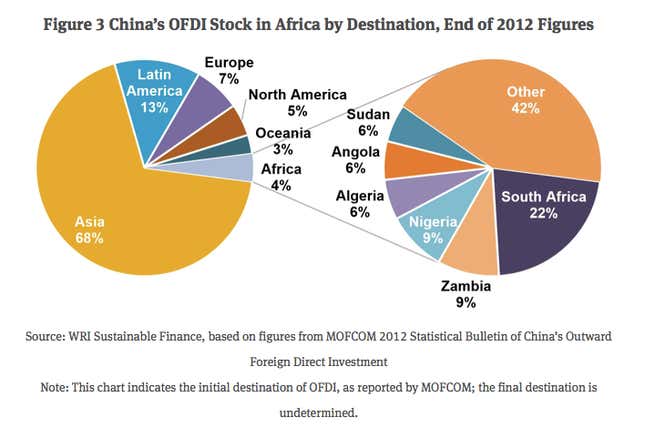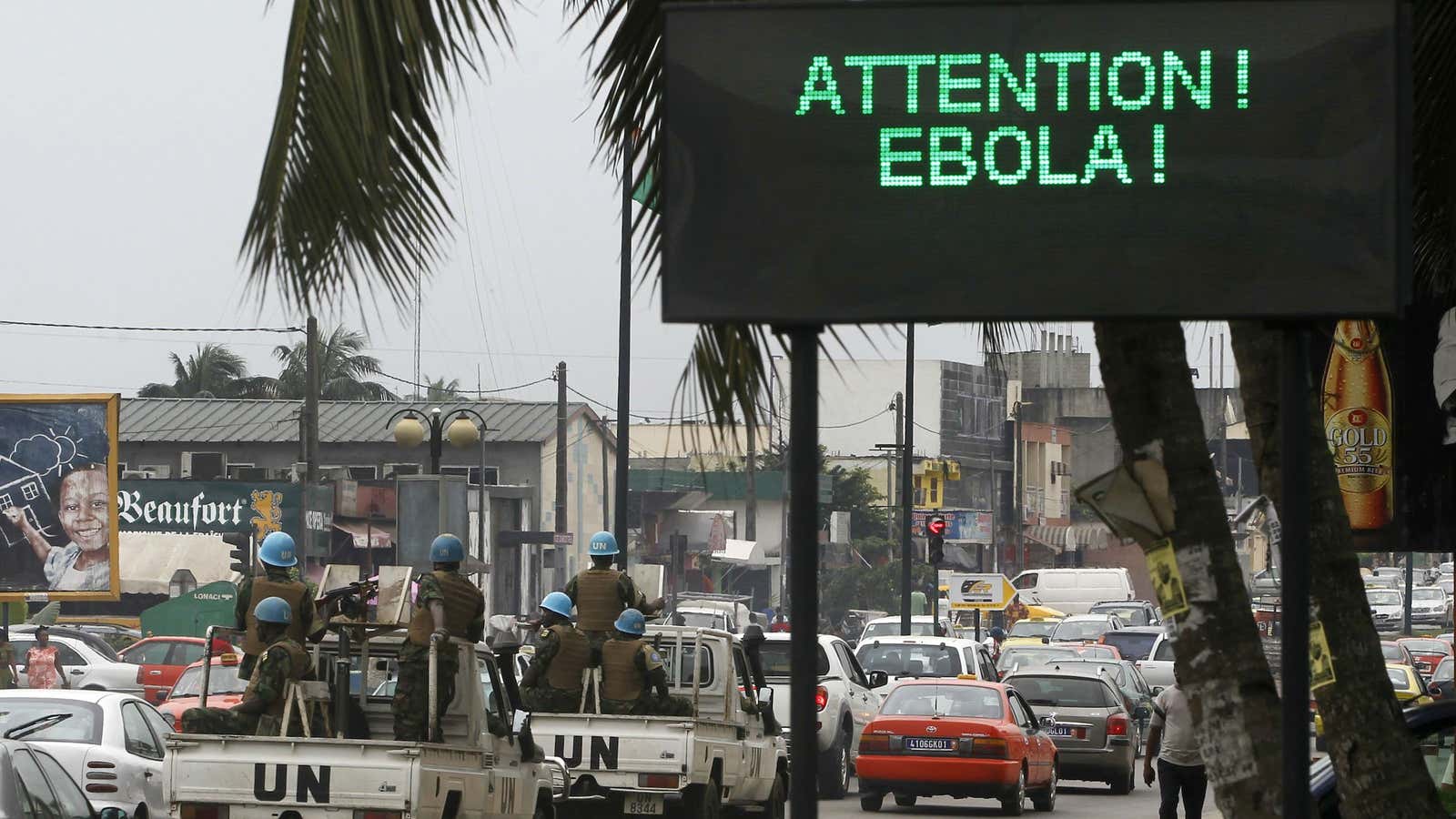While Western NGOs have been evacuating Ebola-affected countries in West Africa in droves, Chinese medical teams and businesses, including software maker Huawei, have been very public about staying put. “Chinese companies that have projects in West Africa are not scared away by the Ebola outbreak but hold on to their commitment and win-win cooperation with African countries,” a news story by state-run Xinhua stated earlier this week.
The outbreak of Ebola in West Africa has given Beijing an opportunity to prove its commitment in Africa and to turn around what some see as China’s mercantilist behavior on the continent, and Beijing has sent medical supplies, experts, and money.
But behind the scenes, Chinese businesspeople appear to be growing more skittish about continuing projects on the continent, where countries like Nigeria, South Africa, and Zambia have emerged as top Chinese investment destinations.

“Ebola has cast a shadow over new possible investment from China,” Xue Xiaoming, vice-chairman of the Chinese Chamber of Industry and Commerce in Nigeria said this week. Chinese authorities estimate that about 20,000 Chinese nationals live in Liberia, Sierra Leone and Guinea, the three countries where the outbreak is most severe.
Without naming names, Xue said that he’s spoken to several potential Chinese investors who have put their plans in Nigeria on hold after airlines like Korean Air and Emirates voluntarily halted flights to Ebola-affected countries. (The World Health Organization says the disease’s chances of spreading among plane passengers is low and has advised airlines to continue serving affected areas, in order to help combat the disease.)
A dent in Chinese investors’ enthusiasm would be keenly felt in Africa. China already accounts for more than 30% of the total value of infrastructure projects in Africa, projects that range from expanding Zimbabwe’s energy sector to developing Nigeria’s oil and gas industry. Many of the countries badly needs these investments—economists believe Sub-Saharan Africa needs to be spending about $93 billion every year to close the region’s infrastructure gap with other parts of the world.
For now, Xue said that China’s current projects in Africa are likely to continue. Huawei’s branch in Guinea, where the disease has killed over 300 people, is continuing normal operations. In Sierra Leone, some projects have been suspended, but Chinese nationals are remaining in the country.
